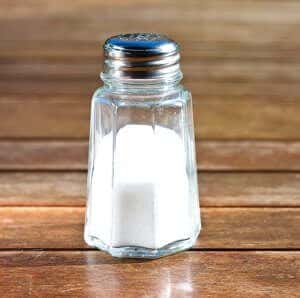
Iodine is essential for thyroid function, which is why many countries add iodine to their salt. In China, some consumers were concerned that iodized salt would increase their risk of thyroid disorders. An epidemiological investigation found, however, that adults who ate less salt and those who ate noniodized salt were at higher risk of thyroid nodules. This risk was increased even further among people who did not drink milk. The researchers conclude that the Universal Salt Iodization program should benefit a large proportion of the Chinese population.
[American Journal of Clinical Nutrition, Sept., 2013]
In the US, doctors generally assume that the use of iodized salt and multivitamins means that iodine deficiency is rare. That assumption may not be safe, since the median urinary iodine concentration among pregnant women in the National Health and Nutrition Examination Survey from 1999 to 2006 was 148 micrograms/liter. That means, while half of pregnant women in this country have adequate iodine, above the 150 micrograms/liter established by the WHO, the other half are falling below.
[Journal of Nutrition, June, 2013]
6/24/19 redirected to: https://www.peoplespharmacy.com/articles/is-the-salt-in-prepared-foods-iodized/

